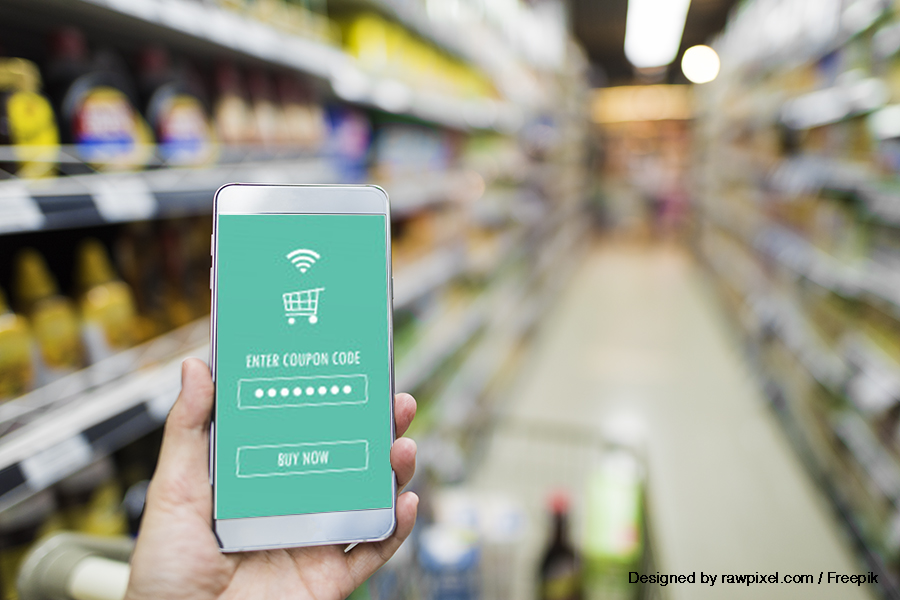
Browsing phone in supermarket
Insights by Mark Thomson, EMEA Director of Retail & Hospitality Solutions at Zebra Technologies
In the wake of the COVID-19 pandemic, consumers expect transparency and accountability from the grocery chains and food-service establishments they patronize.
Perhaps now more than ever, consumers are concerned about the safety of the places they go, the things they touch, and the food they eat. Many effects of the COVID-19 crisis on consumer beliefs and behaviors will extend beyond the pandemic, making it even more essential that businesses prioritize food safety in their long-term plans.
For grocers and other businesses in the food service industry, this means dedicating extra time and resources to ensure the safety of the food products they offer. Emerging technologies are proving essential for increasing accountability and traceability across the food supply chain, from manufacturer to the end customer’s plate.

After a challenging 2020, rebuilding customer trust is paramount
Right now, public trust around food safety is low. According to Zebra’s Food Safety Supply Chain Vision Study, which was completed before the onset of the pandemic, only 20% of consumers placed complete faith in the grocery and food service industries to ensure the safety of their food and beverages.
Damage to a grocer or supplier’s reputation can have a long-term effect on the business, particularly at a time when consumers are hyper-aware when it comes to germs, cleanliness, and infection. In the hospitality sector, food safety issues can be particularly devastating. According to Zebra’s survey, six out of 10 customers would not return after contracting a food- borne illness in an establishment.
However, the relationship between customers and grocery stores is different as shoppers likely depend on just a handful of different shops, where they make regular visits throughout a given month. Food safety issues may be harder to trace and shoppers may find it more difficult to avoid stores versus simply choosing to no longer patronize a restaurant or hotel. Since grocers play such a pivotal role in the lives of their shoppers, it’s particularly important not to cut corners and instead take on the responsibility of ensuring food safety.
How grocers can meet demand for transparency, traceability, and accountability
Consumers are demanding more transparency from the merchants and brands they shop whether it is for apparel or household essentials. They want to know where their food comes from, who has handled it, and how long it has taken to get to the shelves of their local supermarket.
Grocers can improve traceability by implementing track and trace technology, enabled by powerful handheld scanning devices at the warehouse, distribution and store level. More visibility and deeper insights allow retailers to effectively communicate product information to their customers, track expiration dates, and avoid food waste by optimizing product shelf life.
Executives in the industry also aware of how important it is to continue investments in this area as 93% of industry decision-makers plan to increase their spending in food-monitoring technology.
Investment in technology delivers a better grocery retail experience
Implementing supply chain technology can also give retailers the tools they need to better respond to unexpected or seasonal disruptions to the market. Grocery supply chain resilience also helps support services such as curbside pickup, buy online pick up in-store (BOPIS), and home delivery, which are quickly becoming consumer expectations in an age of social distancing. Thinking ahead, it helps to ensure the establishment is keeping up to date with changing regulatory standards and effectively positioned to protect customers and its brand.
As supply chain technology becomes more sophisticated, predictive analytics will play an increasingly crucial role for grocers and other businesses looking to foster long-term customer loyalty and stay ahead of the competition. Optimizing supply chains does more than just protect guests from food-borne illness – it also helps protect the business’s bottom line.
Notifications
You must be logged in to post a comment.